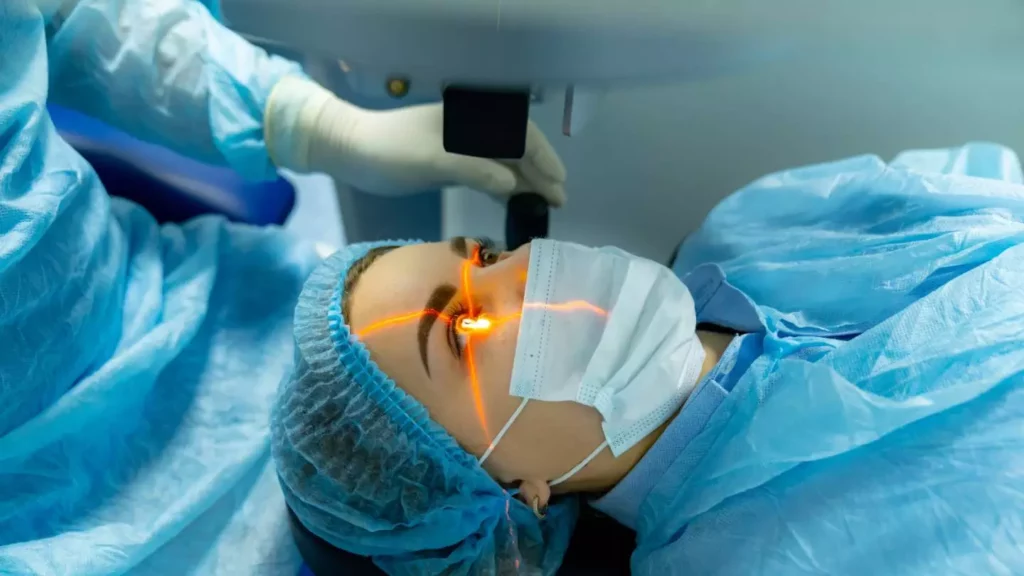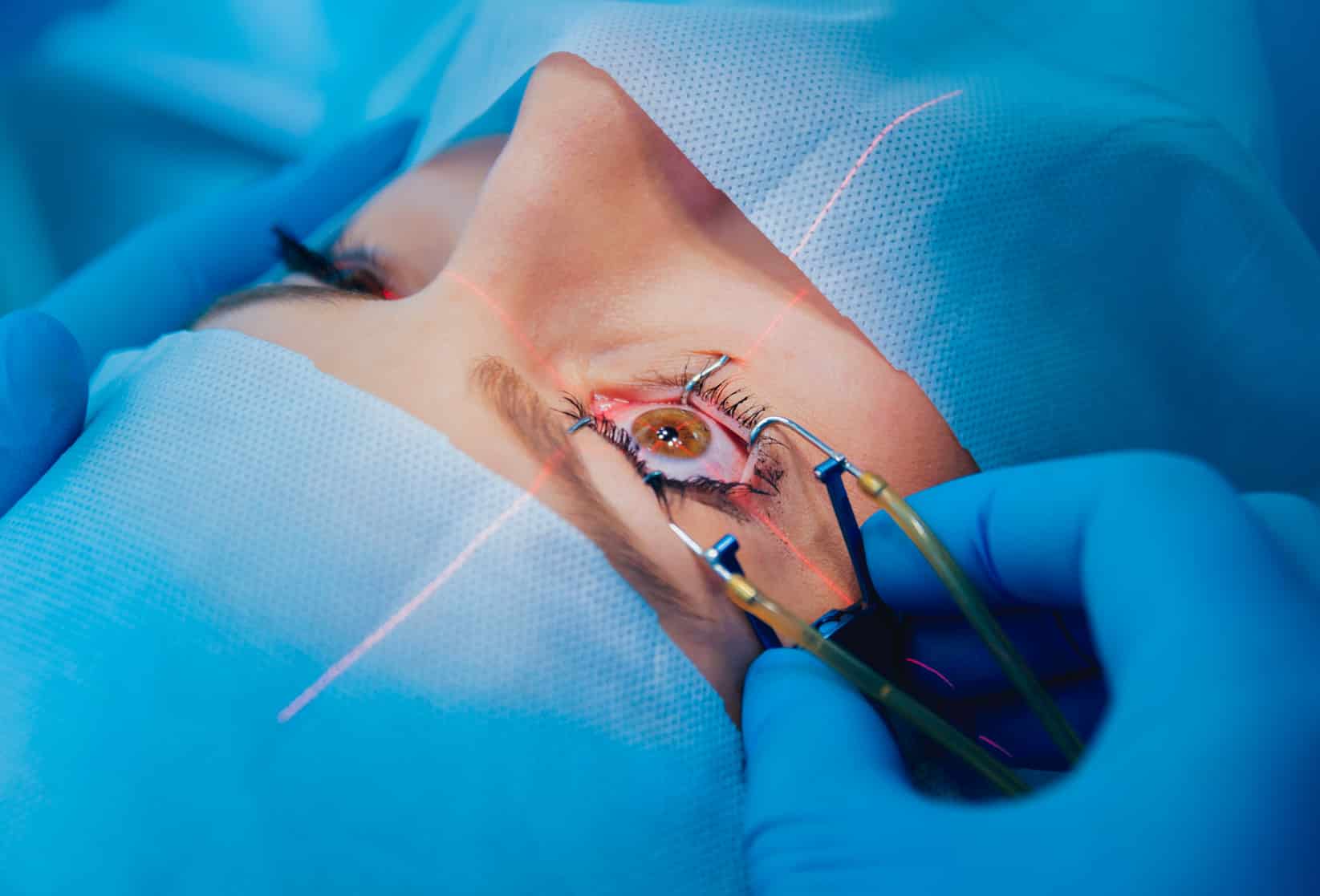When it comes to improving vision and saying goodbye to glasses or contact lenses, laser eye surgery has become an increasingly popular option for many individuals. This advanced procedure uses a laser to reshape the cornea, correcting refractive errors such as nearsightedness, farsightedness, and astigmatism. However, deciding to undergo laser eye surgery is just the first step on your journey to clearer vision. Choosing the right clinic for your needs is equally important. In this article, we will explore the different aspects to consider when selecting a laser eye surgery clinic that ensures you receive the best possible treatment.
Understanding Laser Eye Surgery
What is Laser Eye Surgery?
Laser eye surgery, also known as refractive surgery, is a revolutionary procedure that utilizes advanced laser technology to reshape the cornea, the clear front part of the eye. By precisely altering the shape of the cornea, laser eye surgery aims to correct common vision problems such as nearsightedness, farsightedness, and astigmatism. This innovative procedure offers individuals the opportunity to reduce or even eliminate their dependence on glasses or contact lenses, providing a new level of visual freedom.
Benefits of Laser Eye Surgery
When it comes to the benefits of laser eye surgery, the list is truly remarkable. One of the most significant advantages is the opportunity for improved vision without the need for corrective lenses. Imagine waking up in the morning and being able to see the world around you with crystal clarity, without the hassle of searching for your glasses or inserting contact lenses. Laser eye surgery can make this a reality.
Furthermore, laser eye surgery offers a remarkably quick recovery time. Many patients report experiencing improved vision within hours of the procedure, with minimal discomfort during the healing process. This means you can swiftly return to your daily activities and enjoy your newfound visual clarity sooner than you might expect.
Potential Risks and Complications
While laser eye surgery has proven to be a highly successful procedure for the majority of patients, it is important to acknowledge that, like any surgical intervention, it carries some risks and potential complications. It is crucial to have a comprehensive understanding of these potential side effects before making a decision.
Some of the risks associated with laser eye surgery include dry eyes, glare, halos, double vision, or even a decrease in vision quality. However, it is important to note that these risks are relatively rare and can often be managed effectively with proper post-operative care. Your surgeon will thoroughly assess your individual risk profile and discuss these potential complications with you, ensuring that you make an informed decision about your eye health.
Remember, laser eye surgery has transformed the lives of countless individuals, offering them the opportunity to experience the world with newfound visual clarity. By understanding the procedure, its benefits, and potential risks, you can make an informed decision about whether laser eye surgery is the right choice for you.

Factors to Consider When Choosing a Laser Eye Surgery Clinic
Clinic’s Reputation and Reviews
The reputation and reviews of a laser eye surgery clinic should be the starting point for your research. Look for clinics with a strong track record of successful surgeries and satisfied patients. Pay attention to online reviews and ratings, as they can provide valuable insights into other people’s experiences with the clinic. Keep in mind that a few negative reviews are normal, but if you notice a consistent pattern of complaints, it’s wise to explore other options.
When considering a clinic’s reputation, it’s also worth delving deeper into their history. Find out how long they have been in operation and if they have any notable achievements or accolades. A clinic with a long-standing reputation for excellence is often a good indicator of their commitment to providing top-quality care.
Surgeon’s Experience and Qualifications
The experience and qualifications of the surgeon who will perform your laser eye surgery are vital factors to consider. Look for a surgeon who is highly specialized in laser eye surgery and has a proven record of successful procedures. Inquire about their experience, training, and certifications to ensure you are in capable hands.
It’s also worth considering the surgeon’s involvement in the field beyond their individual practice. Have they contributed to research or advancements in laser eye surgery? Are they affiliated with any professional organizations or societies? These additional factors can give you a better understanding of the surgeon’s dedication to staying at the forefront of their field.
Technology and Equipment Used
Advancements in technology have revolutionized laser eye surgery, allowing for more precise and reliable outcomes. When choosing a clinic, inquire about the technology and equipment they use. Ask if they employ state-of-the-art lasers and diagnostic tools, as this can significantly impact the effectiveness and safety of the procedure. Read more about effectiveness and safety at https://www.dbeicoe.med.upenn.edu/crest/center-real-world-effectiveness-and-safety-therapeutics
Furthermore, it’s important to understand the clinic’s commitment to staying up-to-date with the latest advancements. Do they regularly upgrade their equipment to ensure they are providing the best possible care? A clinic that invests in cutting-edge technology demonstrates a commitment to offering their patients the most advanced treatment options available.
Aftercare and Support Services
Recovery and post-operative care are crucial aspects of laser eye surgery. A reputable clinic should provide comprehensive aftercare instructions and support services to ensure a smooth recovery process. Inquire about their follow-up appointments, availability for any concerns or issues, and the level of support you can expect throughout your healing journey.
Additionally, it’s worth exploring the clinic’s approach to patient education and support. Do they offer resources or workshops to help you understand what to expect during the recovery process? Are there dedicated staff members available to answer your questions and address any concerns that may arise? A clinic that prioritizes aftercare and support services demonstrates a commitment to your overall well-being beyond the surgery itself.
Questions to Ask Your Potential Surgeon
About Their Experience and Success Rates
When consulting with potential surgeons, don’t be afraid to ask about their experience and success rates. Inquire about the number of laser eye surgeries they have performed and the outcomes they have achieved. A skilled and experienced surgeon will be more than willing to share this information, allowing you to feel confident in their abilities.
Furthermore, it can be beneficial to ask about the types of laser eye surgeries they specialize in and whether they have experience with cases similar to yours. Understanding their expertise in specific procedures can give you insight into how well-suited they are to meet your individual needs. Additionally, inquire about any specialized training or certifications they have that demonstrate their commitment to excellence in the field of ophthalmology.
About the Procedure and Recovery Time
Understanding the procedure and what to expect during the recovery phase is essential to ensure you are well-prepared. Ask your potential surgeon about the specific steps involved in the surgery and how long the recovery process typically takes. This will help you make informed decisions and plan accordingly.
Moreover, it is important to discuss post-operative care instructions and follow-up appointments with your surgeon. Knowing what to expect in terms of recovery milestones and when you can resume normal activities can aid in a smoother recuperation process. Your surgeon should provide detailed information on how to care for your eyes post-surgery and be available to address any concerns or complications that may arise during the healing period.
About Possible Side Effects and Complications
Discussing potential side effects and complications is crucial for managing expectations and making an informed decision. Ask your surgeon about the potential risks associated with laser eye surgery and how they handle any complications that may arise. A responsible surgeon will be transparent about the possibilities and provide you with the information you need to make an educated choice.
Furthermore, inquire about their track record in managing complications and their approach to minimizing risks during and after the procedure. Understanding how your surgeon prioritizes patient safety and well-being can give you peace of mind as you consider undergoing laser eye surgery. Remember, open communication and thorough research are key to selecting a surgeon who will prioritize your vision health and overall satisfaction. To read more about peace of mind click here.

Preparing for Laser Eye Surgery
Initial Consultation and Eye Examination
Before laser eye surgery can be performed, an initial consultation and eye examination are necessary. During this appointment, the surgeon will evaluate your eye health, check for any underlying conditions, and determine if you are a suitable candidate for the procedure. They will also discuss your expectations and answer any questions you may have.
Health Evaluation and Risk Assessment
As part of the preparation process, a comprehensive health evaluation and risk assessment will be conducted. This assessment evaluates your overall health and identifies any potential risk factors that may affect the surgery. It is essential to be honest and thorough during this evaluation to ensure your safety and the success of the procedure.
Pre-Surgery Instructions
Prior to the surgery, your surgeon will provide you with specific instructions to follow. These instructions may include avoiding certain medications, abstaining from food or drink for a specific period before the procedure, and properly caring for your eyes in the days leading up to surgery. Adhering to these instructions is crucial to ensure the surgery is as safe and effective as possible.
Once you have completed the initial consultation and eye examination, you may have a few weeks before your scheduled surgery date. During this time, it is important to take care of your overall health and well-being. Eating a balanced diet, getting regular exercise, and getting enough sleep can all contribute to a successful surgery and a smooth recovery.
In addition to taking care of your physical health, it is also important to take care of your mental and emotional well-being. Laser eye surgery can be a life-changing procedure, and it is normal to feel a mix of excitement and nervousness leading up to the surgery. Taking time for self-care activities such as meditation, deep breathing exercises, or engaging in hobbies you enjoy can help reduce stress and anxiety.




